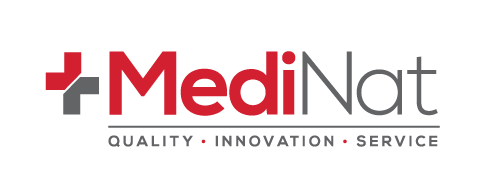
Managing Medicinal Cannabis in the Workplace
Internationally, including Australia and New Zealand, the legal use of cannabis prescribed for medical reasons is becoming more prevalent although with specific jurisdictional differences.
Of concern for workplaces is not the legality of the medication, but the impact on safety of the workers and workplace.
Formulation
The principal psychoactive ingredient in Cannabis is Tetrahydrocannabinol (THC) which appears at various concentrations in the preparations used as medicinal Cannabis. The amount of THC in prescribed product varies widely from CBD Oil and some hemp products for example (which generally contains less than 1mg/mL of THC) to oils, oral sprays and even a “whole flower” preparation can contain 20% THC. Add to this the varying ways that these medications are administered which can affect intoxication times i.e. oral ingestion, spray, vape.
Safety
THC is known to have an intoxicating effect as is recognised in drugged driving legislation and this equally applies to the negative impacts upon safety in the workplace. This requires a workplace to sensitively manage the safety of individuals in the workplace who have legitimately prescribed Cannabis based medications.
Testing
Urine drug testing will identify the presence of Cannabis (THC) metabolites if the individual being tested uses medicinal Cannabis. The interpretation of confirmatory laboratory reporting can be more complex in determining compliance to the donor’s prescription due to the lag between use and excretion into the urine of stored THC from the fat cells.
Oral fluid drug testing will detect the drug if it has been used recently and the result may also be impacted by the route of delivery ie oral spray, oral drops, vape, smoke or other forms of delivery.
Assessment for Safety
An employer who confirms a drug exceeding the levels identified in the relevant Australian and New Zealand Standards has an obligation to assess the safety of the individual in the workplace relevant to the duties being performed in accordance with company policy.
It is likely that the most appropriate person to make such a determination is a Medical Review Officer (MRO) who can be fully informed of the nature of the medication and preparation being used and the duties being performed. To make this assessment, the MRO will usually have a discussion with the worker and their prescribing doctor as well as with the worker’s supervisor or manager to accurately determine risks.
It is important that the worker furnish their employer with a copy of the formulation data, prescription and any other relevant information to enable an appropriate determination to be made.
It should be noted that there is no way to differentiate recreational use of Marijuana from the use of medicinal cannabis purely from a laboratory report. It is possible that the concentrations present in the donor’s system may give rise to suspicion of overuse or supplementation however there is no definitive way to establish this.
Disclosure
Disclosure of the use of medicinal cannabis is subject to organisational policy. Ultimately, workers should disclose the use of their medication to their employer when prescribed. Employers must respond sensitively to the disclosure whilst having consideration to the safety of the worker, their colleagues and the wider community.
At the very least, the worker should disclose the use of medicinal cannabis during testing, especially subsequent to a not negative THC result.
Possible Policy Framework
A possible policy framework for treating medicinal cannabis in the workplace might look like this:
- During testing, donor completes medical declaration with regard to medicinal cannabis use
- THC not negative identified during test
- Lab sample taken and despatched for confirmation
- If Medicinal Cannabis was previously undeclared and a result has appeared during screening, it is appropriate to stand the worker down pending review for safety.
- For subsequent detections, the worker may be permitted to return to work on approved duties at the discretion of the employer and subject to guidance from an MRO
- Regardless of the circumstances, the worker should not work with heavy equipment including driving home or otherwise in a safety sensitive role. Certain industries may specifically exclude a return to work under any circumstances.
- The donor must furnish a copy of all documentation associated with the use of medical cannabis including a valid prescription, information related to the formulation of the medication and any other relevant information. This information is sensitive and must be dealt observing privacy and data security
- The employer will provide this information to the MRO together with detailed information about the duties performed by the worker and workplace risks identified.
- The MRO will, taking the above information into account be able to provide an assessment of the duties, if any, that the worker will be able to perform whilst taking the medication
- The employer may use this advice to determine the ongoing engagement with the worker in consultation with the worker, the MRO and the worker’s treating medical team
Legal Advice
Employers must seek appropriate legal advice in relation to this potential policy framework to ensure that they are compliant with their legislative and regulatory requirements. Employers will also need to obtain qualified legal advice regarding the appropriate consents required to facilitate the transfer of information in the policy framework, relevant to their jurisdiction. These requirements can vary widely. As this is an emerging issue for workplaces to manage, it is important that each employer continually review both the legal and medical environment associated with this information.

